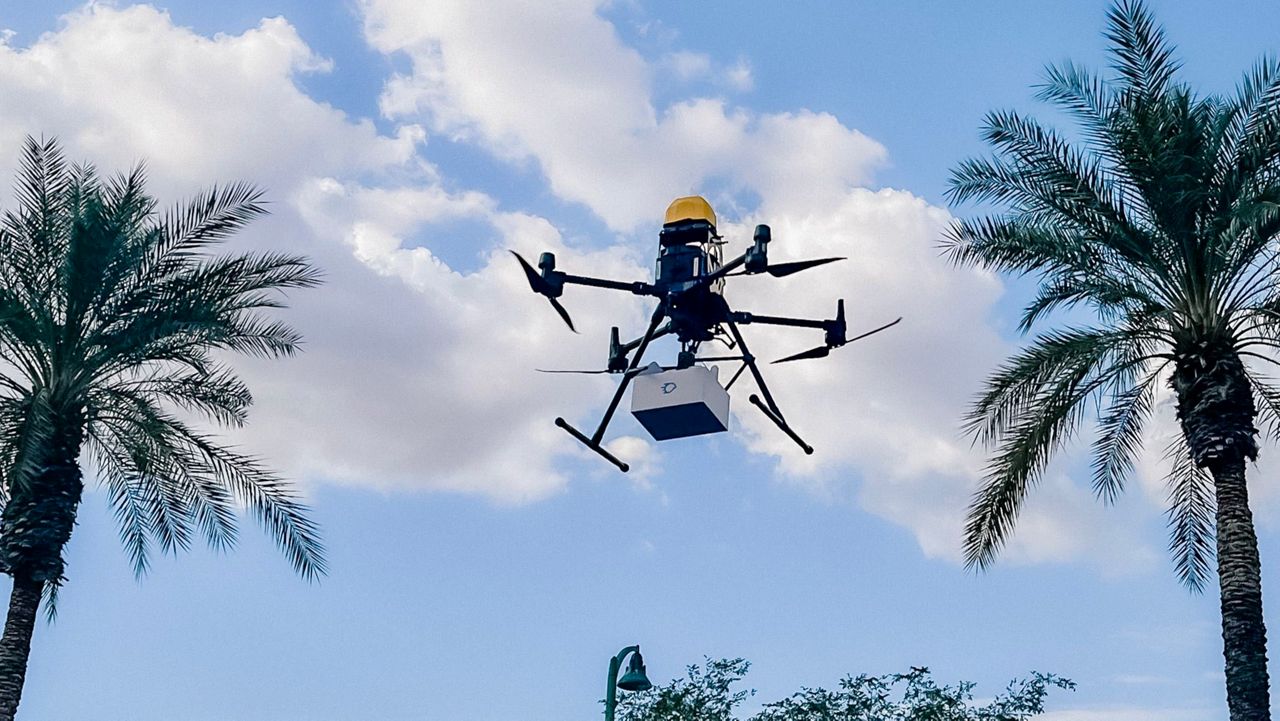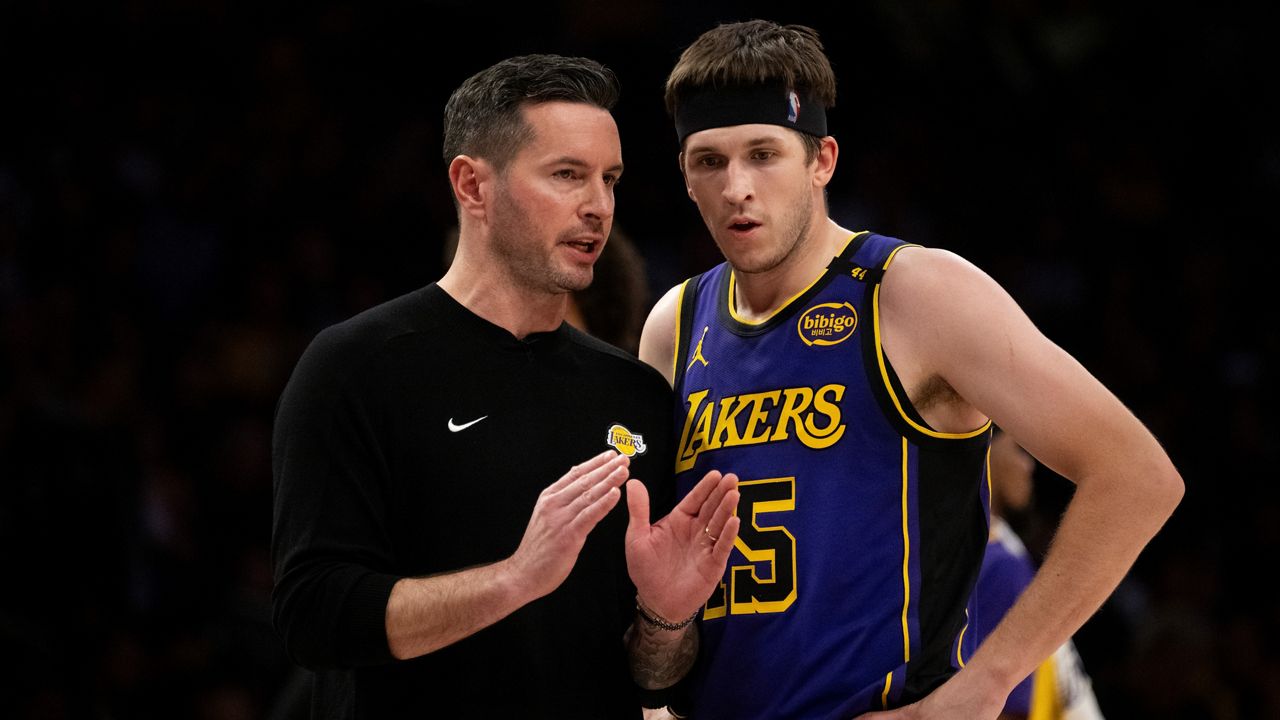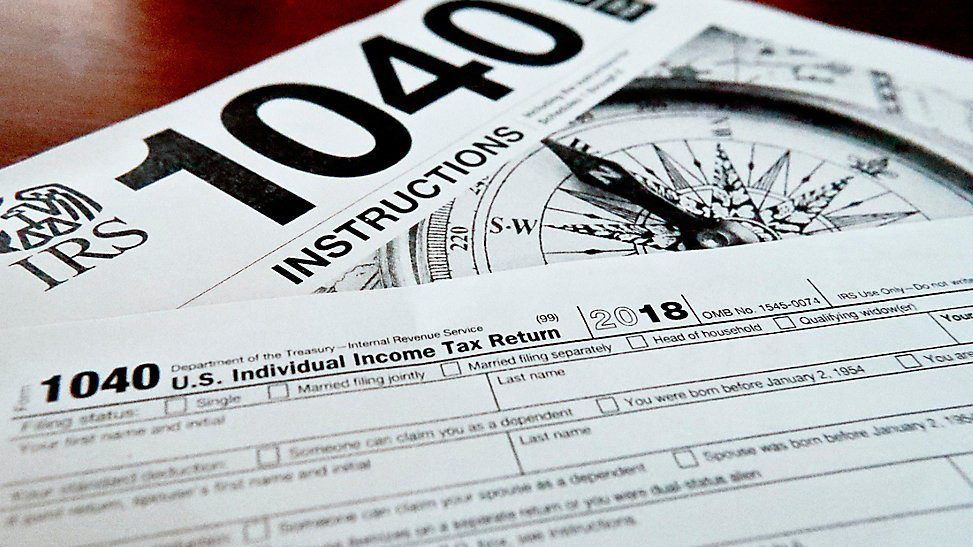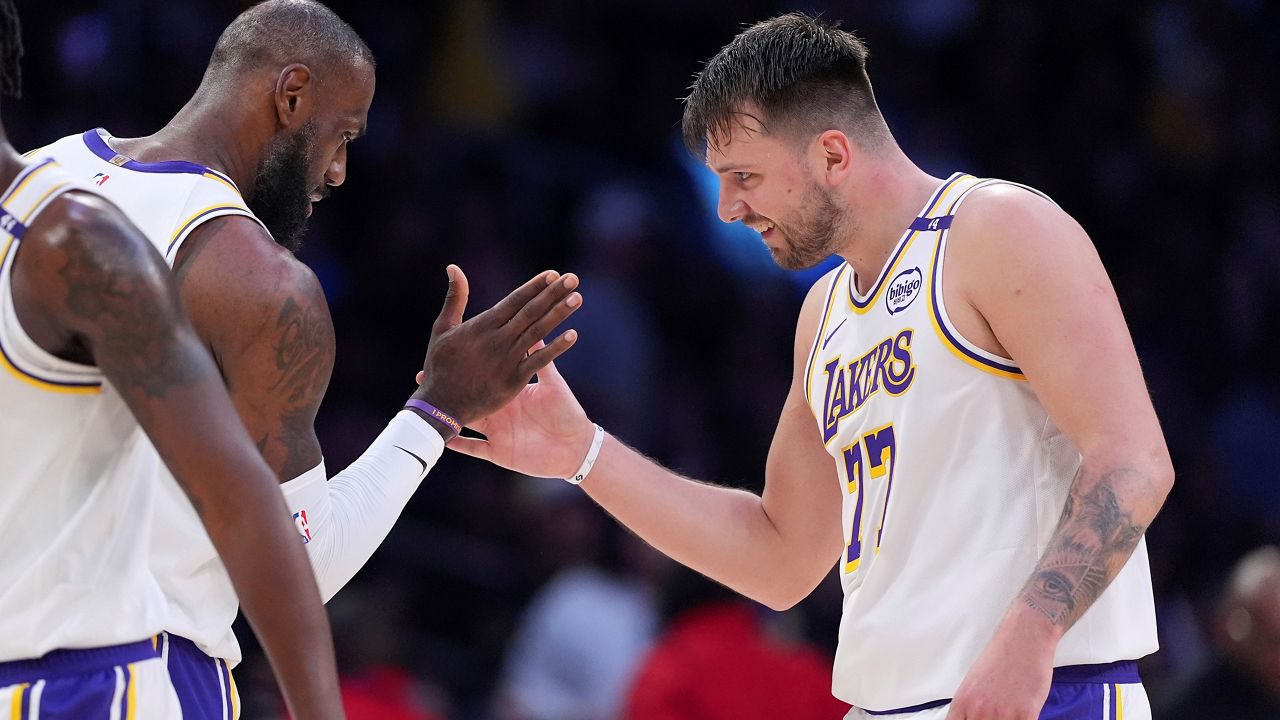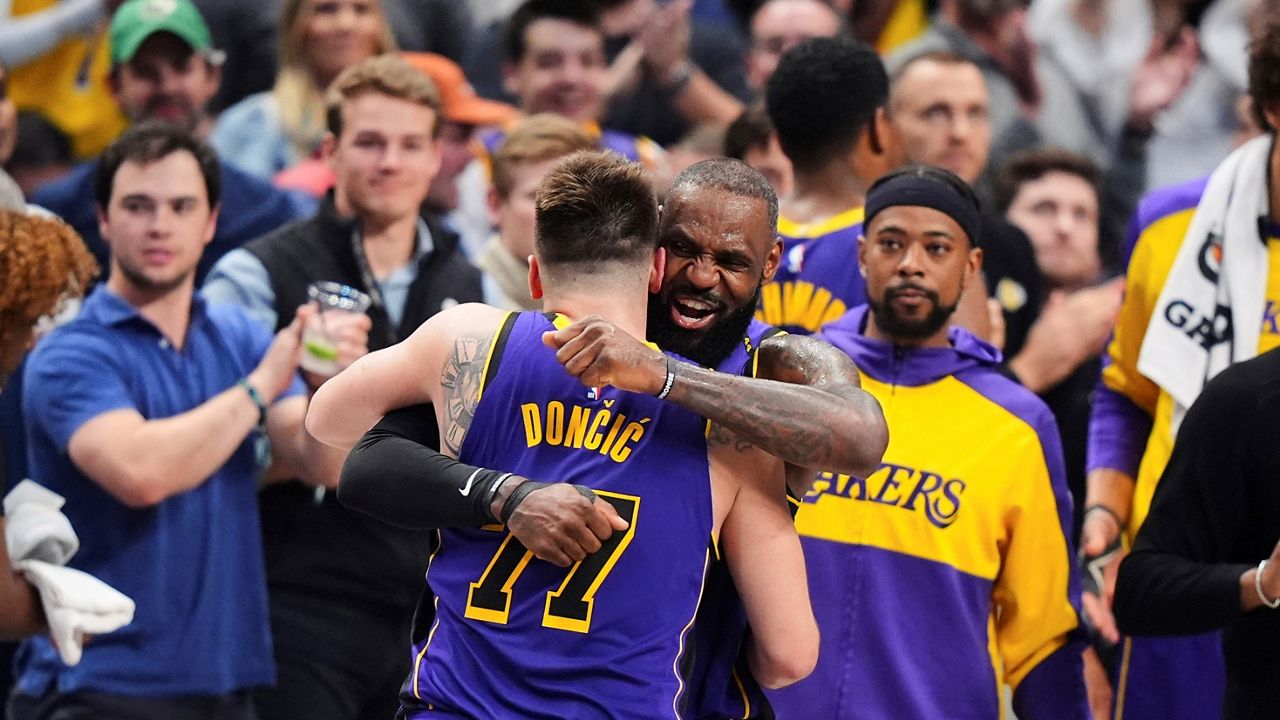LOS ANGELES — The way Jon Asher sees it, having items sent by drones is the future of delivery.
Since the start of the month, Nekter has teamed up with the Los Angeles-based Flyby Robotics on a drone delivery service at the juice company's Mesa, Arizona, location.
So far, customers are enjoying receiving their juices, smoothies and acai bowls via drone, Asher noted.
"It's a cheaper alternative to standard delivery," said Asher, the chief marketing officer at Nekter Juice Bar. "It cuts out the costs and fees. It's better for the environment and exciting and cooler."
And it's fast.
"The delivery is almost as quick as regular service," he added.
Flyby Robotics wants to change how people receive food and drink deliveries now and in the future. The end-to-end drone automation and delivery company, founded by Yale graduates Cat Orman and Jason Lu, looks to capitalize and stand out in a growing market fueled by stay-at-home restrictions stemming from the coronavirus pandemic.
Government stay-at-home orders, the closure of brick-and-mortar stores, remote work and people's reluctance to go out during the early height of the pandemic fueled e-commerce sales and both the need and high demand for delivery service.
While ground-based vehicles are the norm for delivery, many experts have said that flying drones are considered a better, faster and more efficient option.
Drones fly above the traffic and can take the quickest route to their destination rather than following roads. However, there are legal and noise concerns.
The number of drone deliveries has jumped in the past several years.
A 2022 report by McKinsey found more than 660,000 commercial drone deliveries to customers worldwide from 2019 to 2022. The company estimates that more than 2,000 drone deliveries occur each day worldwide.
They estimated more than 1.5 million deliveries just in 2022, an increase of 1 million from the previous year, and "the growth rate is accelerating every week."
Because it's more cost-efficient than standard commercial aviation, McKinsey reported that more than 100 drone delivery companies are in the market.
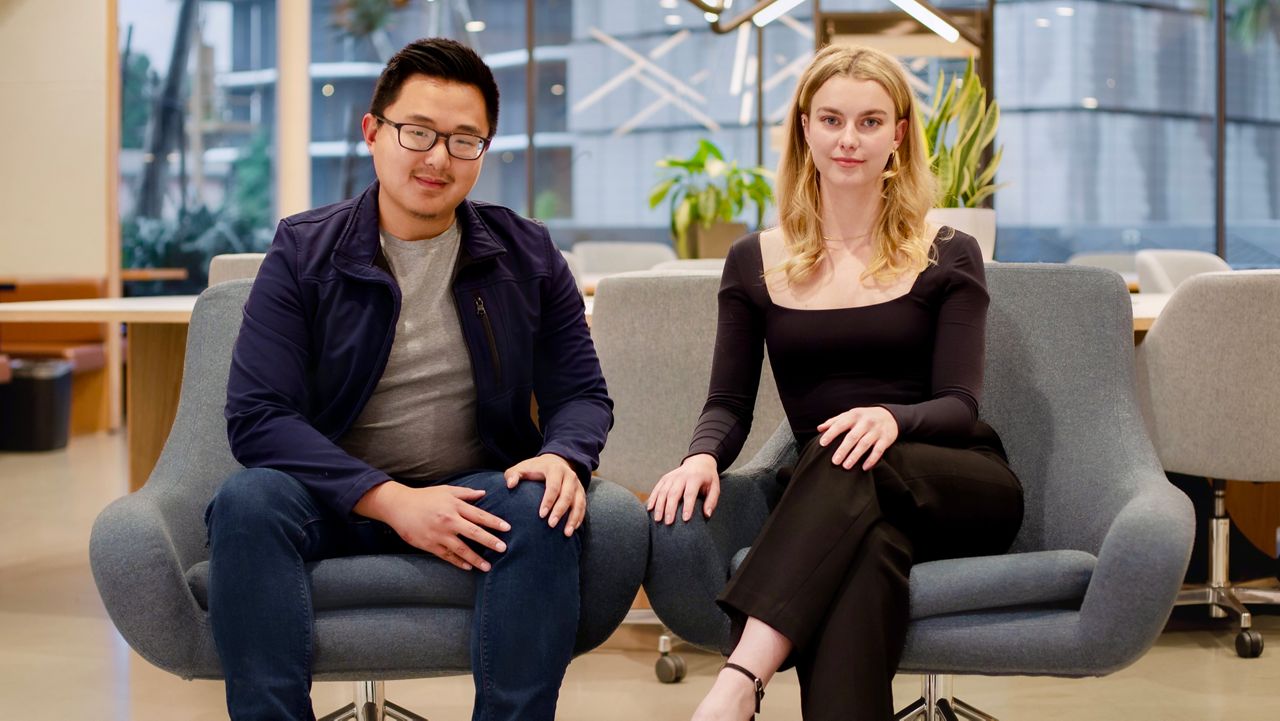
Flyby Robotics looks to stand out among the crowded field.
Flyby co-founder and COO Cat Orman told Spectrum News that Flyby's drone service is different from other competing companies. It's mostly autonomous and quieter.
"We've taken a light infrastructure approach," she said. "We designed the drone to be as lightweight and infrastructure-light as possible so that it can create the most seamless and quiet user experience possible."
The drone delivery startup, founded in 2020, recently received $4M in pre-seed investment funding from venture capital companies, such as MaC Venture Capital, Weekend Fund, Anthemis and Evening Fund, along with other private investors. Pre-seed investments are early-stage financing that helps a startup get off the ground.
Orman told Spectrum News that some new funds would go towards developing the delivery drone to have a higher level of autonomy.
The drone is currently operating at a level-three autonomy, meaning it mostly works by itself with some human supervision and intervention.
"But at a higher level of autonomy, you would take that human out of the loop entirely," Orman said.
Flyby is piloting its only drone and delivery service in Mesa, Arizona. The company has partnered with Nekter, MAD Greens, and Tokyo Joe's.
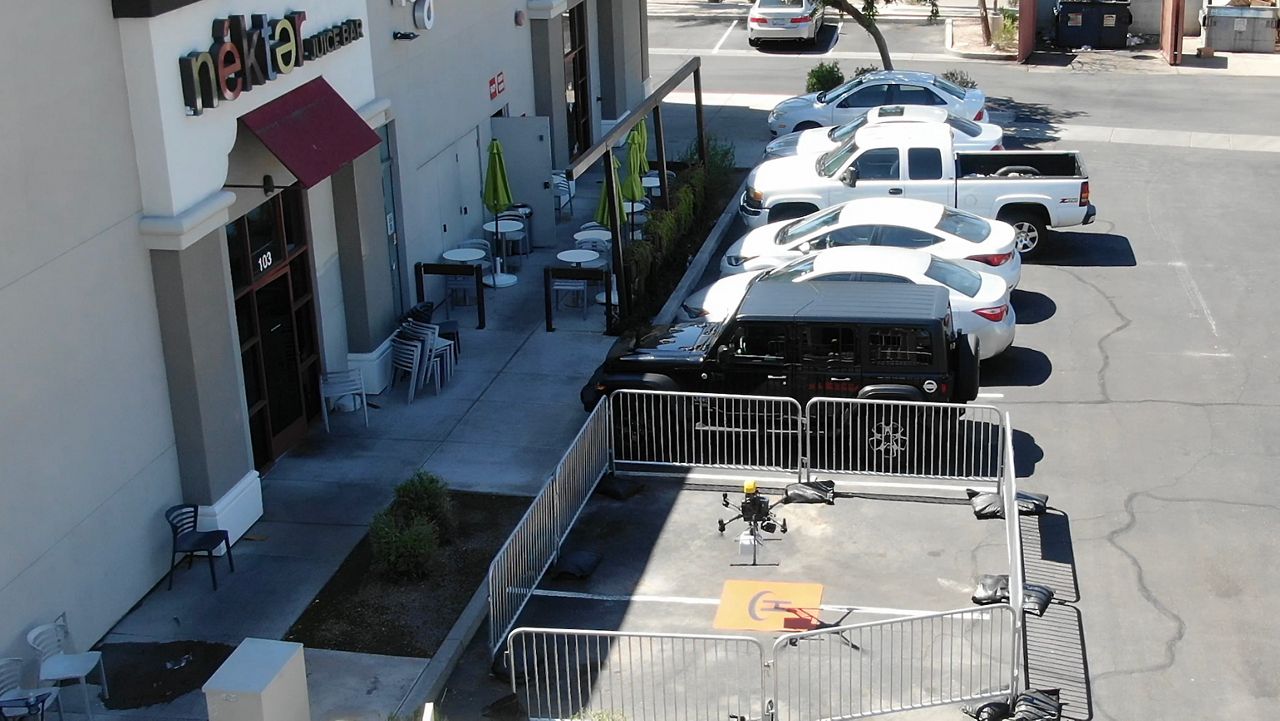
Orman said Flyby rented a parking space in the business park in front of the stores where they park the drone. Customers within a mile of the stores order their items and input their addresses via the Flyby mobile application.
The store employee then prepares the food, smoothie or acai bowl and, once finished, goes outside to the drone's parking space and places the items inside the payload.
The drone autonomously takes off more than 100 feet in the air, flies to the customer's home, and a special payload mechanism lowers the food or beverage item via a wire to the ground.
"It knows exactly where the ground is and very gently places the food down to the customer's doorstep, backyard, or wherever. The wire comes back up, and [the drone] returns home and lands."
Orman said the drone delivery service is $3, and the average delivery takes less than five minutes. The drone can only carry about three pounds of food or drink.
"We've received a good reception," Orman said.
Asher, the Nekter official, pointed out that they received many positive responses since introducing the drone delivery service on April 1. Flyby contacted the Costa Mesa-based juice company, which has 184 stores in 22 states nationwide, to partner earlier this year.
Asher added that standard ground-based delivery was too expensive for customers. Customers had to pay anywhere from $4.99 to $9.99 to have items delivered to their homes.
"Flyby gave good rates, and it's cheaper than having an actual human driver," he said.
Ashed noted that, as a business, they had concerns about the liability and legalities of having a drone delivery service.
"But Flyby had answers to our concerns," he added.
Asher explained that the drone delivery pilot program would only be about a month, but they would love to continue with Flyby in the future.
"We've received so many positive responses from our customers," he said. "Some of them have contacted us asking when our other locations are going to have it. I think the world is ready for this."






